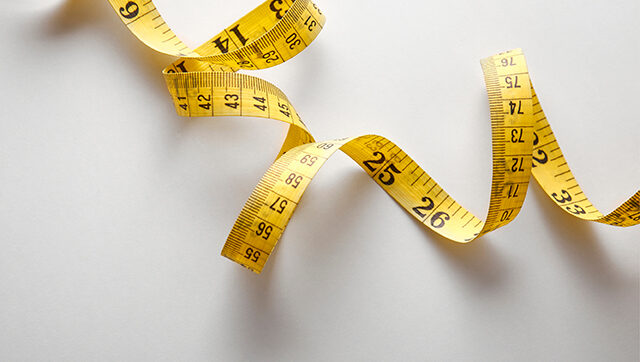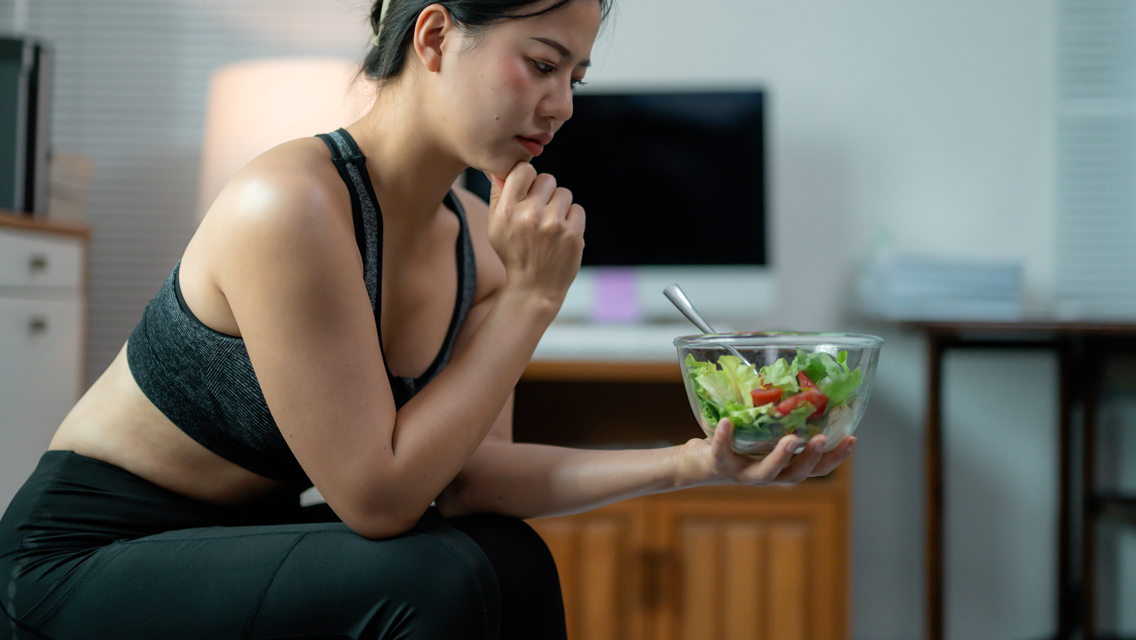This blog started because of a conversation I overheard at a coffee shop. I didn’t mean to listen, but the café was crowded and the five women at the table next to me were squished around the tiniest table in the room, discussing their recovery from eating disorders.
It was just then that I opened my work-related TweetDeck feeds, which constantly blip with tweets about the latest diet, fitness and health news.
As you might expect at a healthy living magazine, the topic of what to eat is an ongoing thing. While Experience Life has a firm (but, gentle) stance on what constitutes a healthy diet, we still monitor the latest diet trends, government guidelines and blogs from our favorite slow foodies, non-GMO activists, locavores, and various omnivorous, vegan and paleo-evangelists.
I applaud (and am part of) the ever-growing movement fighting to help make food safer, more accessible and affordable. And, of course, I want more people to get educated on who grows and cares for their food, as well as how and where it’s grown. I’m guessing that most people reading this can probably get down with all that. But there are some things the women at the table next to me reminded me of and made me question.
Are we concerned with what we’re consuming (or don’t), or is it consuming us?
Certainly, we’re searching for health and happiness, but I suspect we’re also looking for acceptance. And, I suspect we all have some control and body image issues of our own that we could work on. “Healthy” eaters, let’s face it: We, too, may benefit from a support group. We share many things in common with those women at the table next to me. Just like them, we live in a society that has an unhealthy relationship with food.
We’ve got citizens with growing waistlines and those killing themselves with their desire to achieve “thinness.” We’ve got people who don’t have enough food, yet we waste a lot of food.
We live in a society where people, particularly women, are praised (by strangers and well-meaning loved ones alike) for being thin. We throw the word “fat” around about others and ourselves as though being deemed fat might be the very worst thing you could ever be.
I went to the gym the other day to use the sauna, which has a scale located outside of it. There wasn’t ONE single woman who walked by that didn’t step on that scale — 17 out of 17! These women were of various shapes, races, heights and ages. They were all lovely. Each had presumably finished some kind of workout. Yet, before they left the gym, they were all driven to visit the scale. Each paused prior to stepping on it as though their life depended upon the information they were about to receive. Once they were on they scale, they quickly glanced up at the ceiling where the scale reader is and hurriedly rushed off. The whole process reminded me of how I feel when I take my terrible-tasting vitamin tablets in the morning. Just hold your nose and swallow.
Some time when you’re at the gym, sit near the scale (I’m sure there will be at least one) and try this sociological experiment. Or, better still, next time you’re wondering how much you weigh, instead focus on how you feel and ask yourself why you want to know.
When you’re at the gym, check yourself. Are you looking at other people working out and making comparisons? “Wow, that dude sure can lift a lot of weight.” “Wow, she sure is skinny.” “Oh, man, she or he probably shouldn’t wear spandex until after dropping a few pounds.”
Next time a friend, family member, partner or co-worker loses weight, before you stop and say, “WOW, you LOOK GREEAAAT,” stop and ask why that’s the societal default statement. I know it’s meant to be supportive and a compliment. But, did that individual not look great before? Did you not love them before? Better yet, instead of complimenting other people, look in the mirror and say it to yourself.




This Post Has 0 Comments